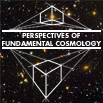Speaker
Nikolaos Mavromatos
Description
Several Models of gravitational Leptogenesis, that is a
lepton over antilepton asymmetry at early epochs of the
Universe, do exist in the literature and involve
coupling of fermions with non trivial curvatures of the
early Universe space-time, leading to different dispersion
relations between particles and antiparticles.
Such differences in the Lepton sector can then be
communicated in the baryon sector via baryon plus (or
minus) Lepton conserving processes, such as sphalerons
(or grand unified models). One can thus obtain
phenomenologically correct values for the so-induced
baryon asymmetry in the Universe, without the need for
extra sources of CP violation, such as Supersymmetry
and/or Sterile Neutrinos, for which at present we have
no (concrete) experimental evidence.
Nevertheless, such models suffer from fine tuning
problems, which I will outline during the lecture.
To avoid such problems, I will discuss an alternative way
of obtaining such differences in the dispersion relation
between matter and antimatter,
and in particular neutrinos, by coupling the latter to
space-time defects in early epochs of our Universe. The
defects can be provided by certain compactified brane
structures in brane/string-inspired Cosmologies. I will
explain carefully why there is a preferential role of
neutrinos, compared to other charged leptons and
quarks
in the Standard Model, in interacting with the ``medium''
of the brane defects, and how such a coupling leads to
different dispersion relations between neutrinos and
antineutrinos, when the latter propagate in dense media
of these brane defects. I will also discuss how in such
models overclosure of the early universe can be avoided,
despite the presence of a dense medium of massive
defects, with masses of order up to Planck mass. This
stems from specific properties of the stringy/brane
model, and requires an extra bulk space, onto which the
brane Universe is embedded and moves.
Phenomenologically correct values of the baryon
asymmetry and matter over antimatter dominance can
be obtained in this model without the aforementioned
fine tuning problems that characterise other models of
gravitational leptogenesis.
As a spin off of this model, which is also a topic
appropriate for further discussion in this workshop, I will
discuss such CPT Violating issues in Finsler Cosmologies,
that is cosmological space-times, in which the metric
tensor depends on phase-space variables, instead of
only coordinates.

